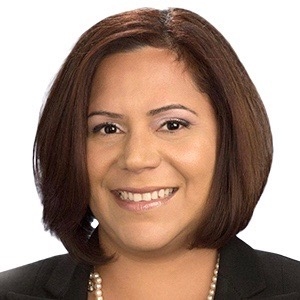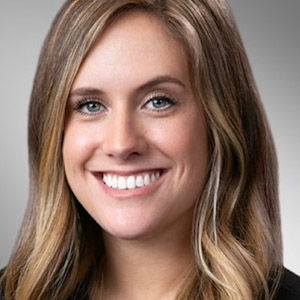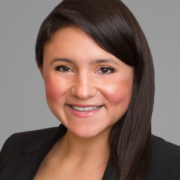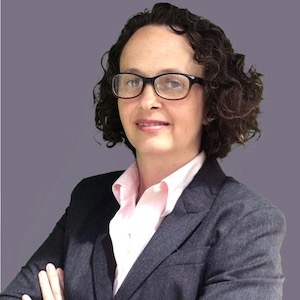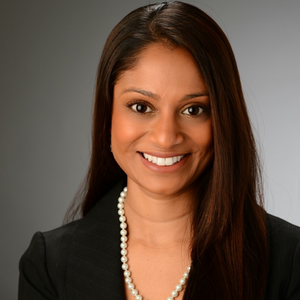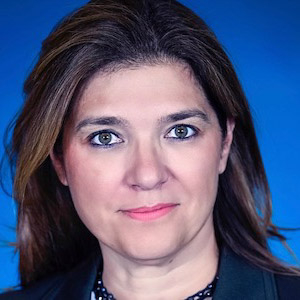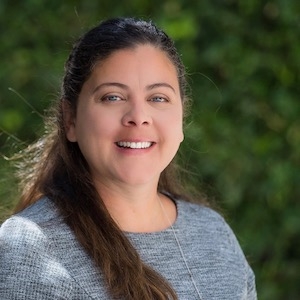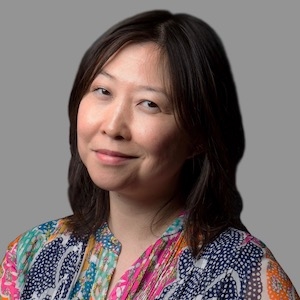Anilu Vazquez-Ubarri, Partner, CHRO at TPG
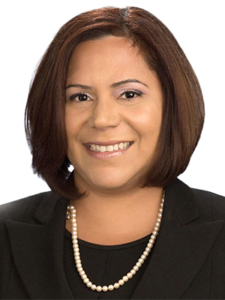 Throughout her career, TPG’s Anilu Vazquez-Ubarri has often been the “first” or “only” in many situations.
Throughout her career, TPG’s Anilu Vazquez-Ubarri has often been the “first” or “only” in many situations.
While she is proud of breaking barriers, she says her goal is to not be the last one or the only one.
“I want to change perceptions and help people realize that differences bring varied perspectives that make our whole corporate culture stronger.”
And, she admits, sometimes that comes with a sense of loneliness and second guessing. “Occasionally, you may question whether you have the opportunities you do because you earned them, and upon reflection, you realize that you not only earned them, but likely worked harder than anyone else to get them.”
Building an Impressive Career that Helps Others Rise
Vazquez-Ubarri began her work in corporate law, where she became familiar with the dynamism of people matters and M&A, interests that led her to a role at Goldman Sachs in employee relations. Joining right before the financial crisis, her thinking about business was completely transformed as she saw firsthand the criticality of strong leadership in surviving any situation.
She subsequently held a number of human capital roles, always with a bent to the talent side, eventually being named Managing Director, Global Head of Talent & Chief Diversity Officer. Two years ago, she joined TPG as the firm’s first Chief Human Resources Officer to help build out the HR function and continue to improve on what was already a great firm culture. She was promoted to Partner in 2019.
What she finds most rewarding is building functional teams while developing robust talent management practices that focus on ensuring they have the best person in each role. “It has become common to combine talent management with diversity to accelerate progress,” Vazquez-Ubarri says. “I redesigned this function at TPG to help the firm think more broadly about people matters and the positive impact that a diverse, equitable and inclusive culture has on performance and engagement.”
Currently she is in the final stretch of a two-year strategy to reimagine the people culture, in part by reinforcing a focus on effective managers and feedback. “We are re-defining the traits of a good manager and the behaviors that lead to good management to maximize performance and engagement,” she says. At the same time, the firm is bringing diversity, equity and inclusion (DEI) to the forefront and also considering it in the role they play in capital allocation, the companies in their portfolio and their whole ecosystem. “We are challenging ourselves to continue to be leaders in our space,” Vazquez-Ubarri says.
Of course, additional priorities emerged as the pandemic raged, and the firm had to figure out what these goals mean in the context of disruption and new platforms for interactions. To that end, she has been leading the firm’s crisis management efforts and focusing on the health of employees and their families to keep them engaged even when remote – enabling them to continue to maximize their impact for stakeholders.
Working remotely would appear to be more challenging as they navigate weighty topics such as racial injustice, but Vazquez-Ubarri says the remote environment has created an ‘equalization of perspectives’ that has allowed teams to have candid conversations that might not have otherwise occurred if they had been in offices and hopping on planes.
“We held over 30 roundtables about racial injustice and our role as a firm and individuals to be change agents. In an interesting twist of fate those conversations were better enabled by technology.”
Developing Talent at All Levels
Vazquez-Ubarri believes in identifying people early in the pipeline and letting them know there is a path for them. Simply put, she wants to encourage people to plan to stay rather than plan to take their career elsewhere.
“Too often companies talk about top performers behind closed doors, but you need to let women know they are valued,” she says. For that reason, TPG closely monitors the talent pipeline to look two to three years ahead of promotions in order to better develop talent by considering what they have accomplished, finding the gaps and holding their managers accountable.
“I think that’s the most interesting feature of how we are looking at this. Our managers know that if they have a talented member of their team and don’t identify potential issues early on, that is a failure on their part,” Vazquez-Ubarri says. “We have to clearly articulate that we are invested and put our focus on ‘stay’ interviews so they don’t become exit interviews.”
Considering the upcoming Hispanic Heritage Month, she mentions her focus on energizing the Hispanic population to help each other rise in the corporate environment. “We have a lot to offer with our diverse cultural background, and it’s important for companies to get to know and understand this talent base, which I believe is underutilized.”
Vazquez-Ubarri spends a lot of time coaching and mentoring women and Latinos who are looking to develop their careers and advance within their fields. “I am excited to see so many women achieve success in industries that normally have not been welcoming,” she says. “I hear them say that they like it here and are going to stay. I am quite optimistic for the state of women in the workplace and for the very important role we have to play in the world in general.”
She also serves on boards that are focused on justice and civil rights for the Latino community, but also have educational and networking components. These include ALPFA (Association of Latino Professionals for America) and the Latino Corporate Directors Association, with whom she proudly partners to make sure that Latinos are represented on boards.
“I spend a lot of energy and capital on mentoring and challenging Latino professionals to stay in the game and move up the corporate ranks by making their voice heard and pursuing leadership opportunities.”
Independent of industry, role or level of seniority, Vazquez-Ubarri says it’s important to “run to the fire.” In other words, she says, don’t be afraid to go after things that are complex. “That’s where change happens, where you learn the most, and have the opportunity to become a trusted advisor.”
by Cathie Ericson

